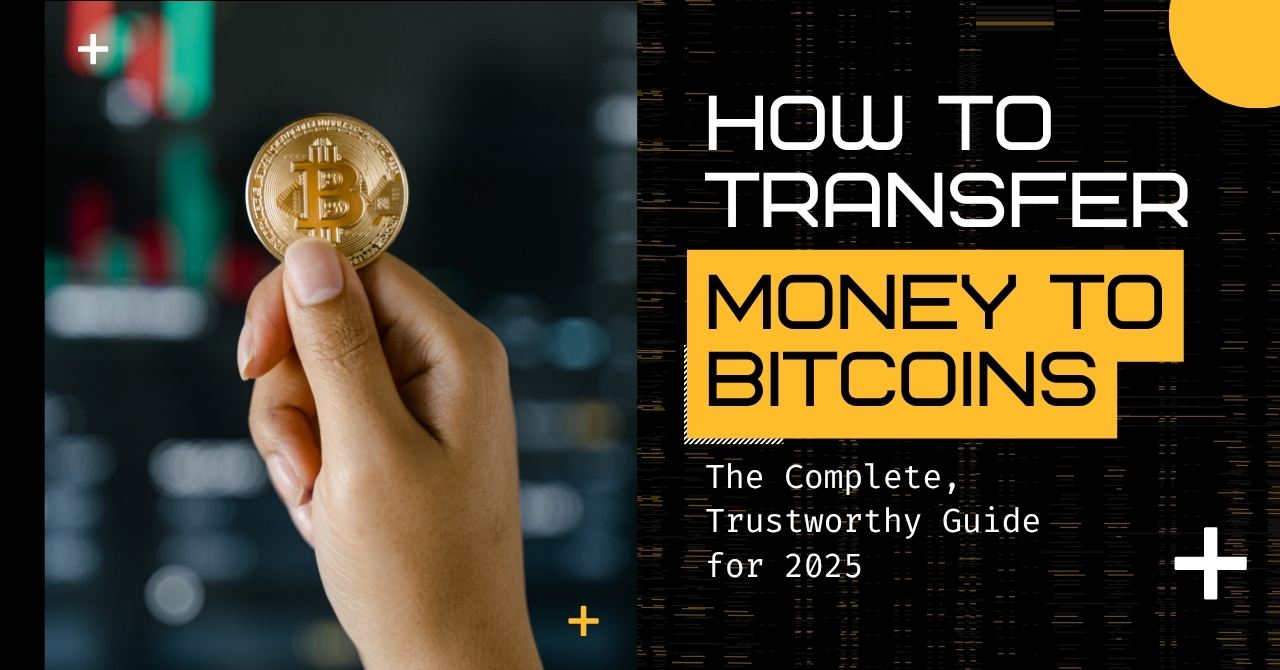How to check Bitcoin transaction quickly and accurately to confirm your payment? Simply use your wallet or a block explorer to verify the transaction’s status in real time. This ensures that your Bitcoin has been sent or received successfully.
I once sold a domain name for BTC, and while waiting for payment, I constantly refreshed the block explorer. Knowing how to check Bitcoin transaction properly gave me peace of mind during that 20-minute window.
In this guide, Vietnam-UStrade walks you through everything you need to know from understanding how Bitcoin transactions work to using reliable tools to track them effectively.
1. Understanding Bitcoin Transactions
Before learning how to check Bitcoin transaction status, it’s important to understand how the transaction process works on the Bitcoin network.
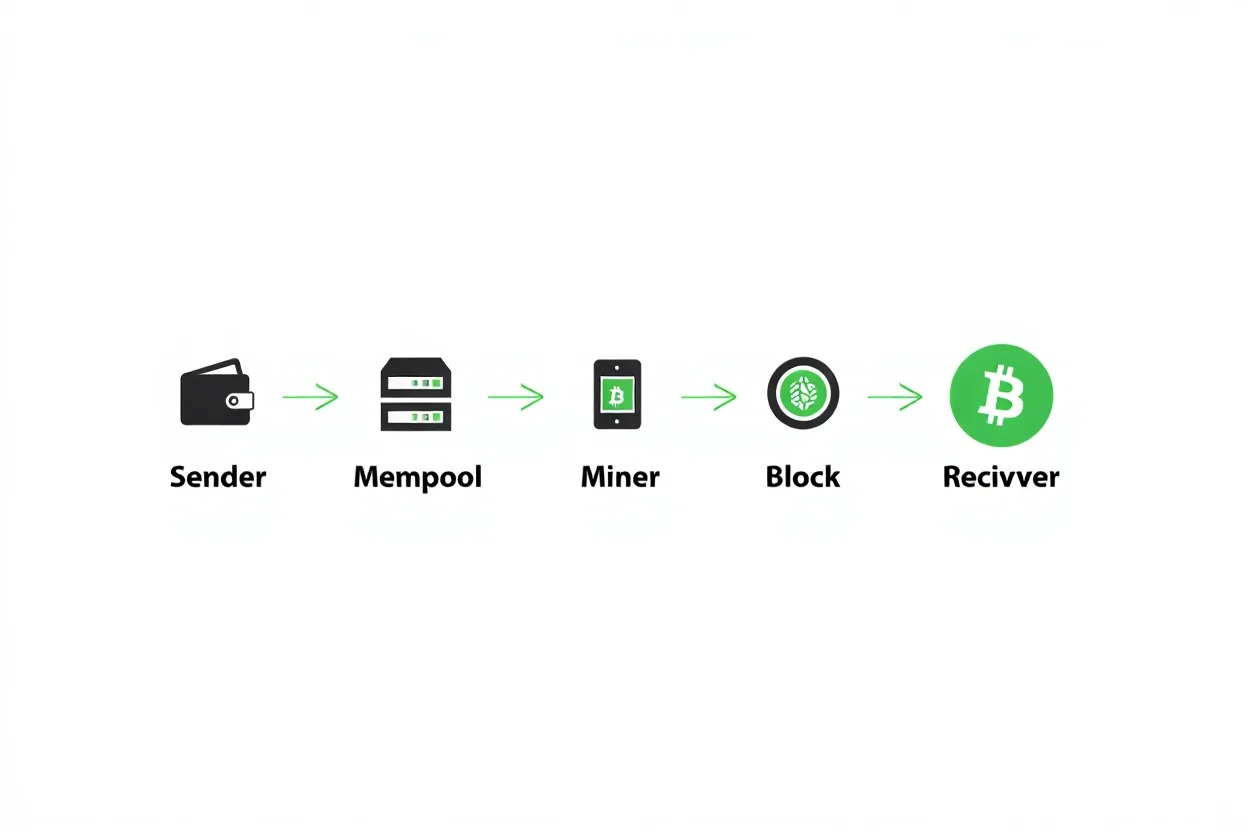
1.1 Transaction flow explained
When you send Bitcoin, the transaction is first broadcast to the peer-to-peer network. It then enters the mempool a temporary staging area for unconfirmed transactions. From there, miners pick transactions with the highest fees to include in the next block. Once your transaction is added to a block, it receives its first confirmation. Each additional block added afterward increases the number of confirmations and strengthens the transaction’s security.
Every Bitcoin transaction comes with a unique identifier known as the Transaction ID (TxID). You can find this ID in your wallet or exchange transaction history. It’s essential for tracking and verifying your transaction using a block explorer.
1.2 Common causes of delay
Some transactions take longer to confirm than others. This is usually due to:
-
Low transaction fees: Miners prioritize higher-fee transactions to maximize profits. Low-fee transactions may remain in the mempool longer.
-
Network congestion: During peak activity, confirmation times increase as more transactions compete for block space.
Understanding these factors is key before diving into how to check Bitcoin transaction progress and confirmation status.
2. How to check Bitcoin transaction status – step-by-step
Checking your Bitcoin transaction status can be done easily either through your wallet or by using a block explorer. Here’s how:
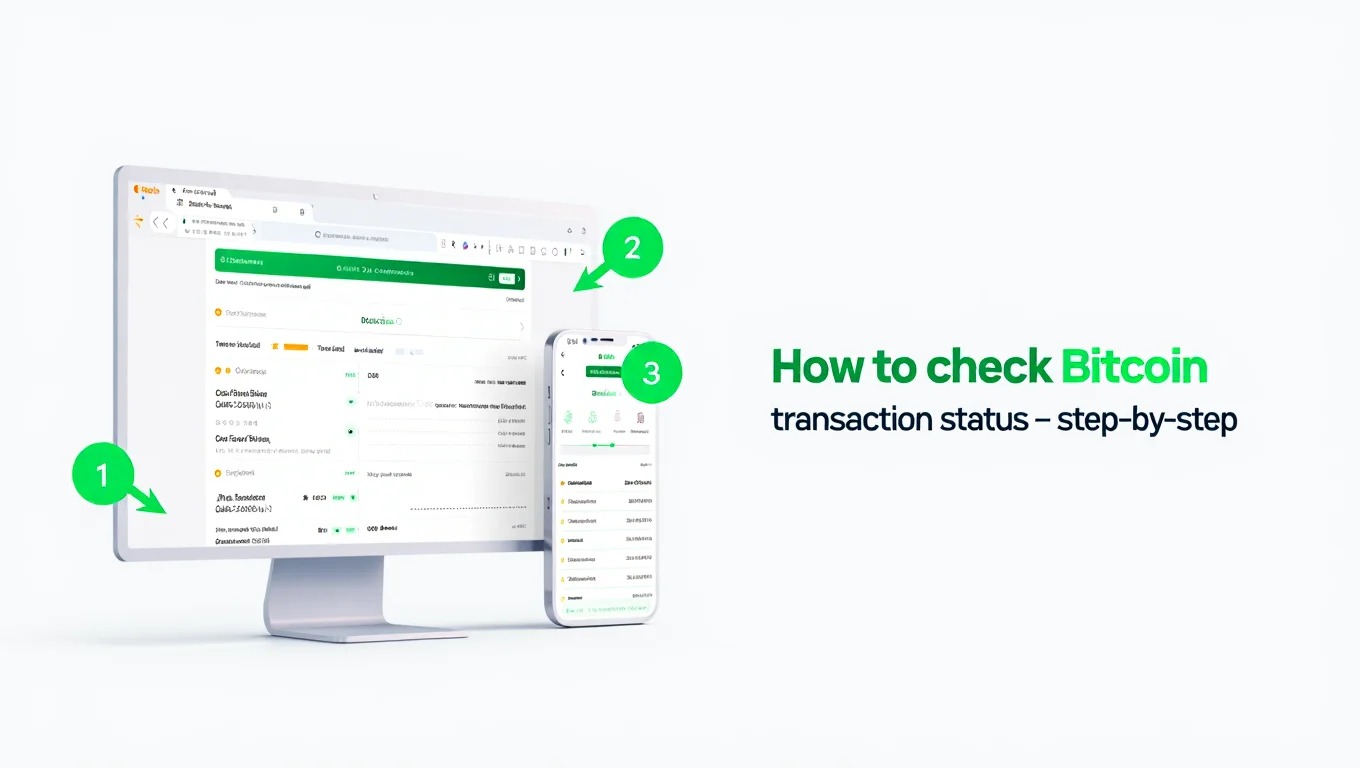
2.1 Using your wallet
Most wallets provide a transaction history section. Locate your recent transactions to find details like the TxID, amount sent or received, and the number of confirmations. If you see zero confirmations, your transaction is still pending.
2.2 Using a block explorer
If you’re not using a wallet, another way for how to check Bitcoin transaction status is through a block explorer.
Block explorers are online tools that provide detailed views of all Bitcoin transactions. Follow these steps:
- Copy your TxID or Bitcoin address: This can be found in your wallet or exchange.
- Visit a trusted block explorer: Examples include Blockchain.com or Blockstream.info.
- Paste your TxID or address into the search box: Hit enter to search.
- Review the transaction details: Look at status, number of confirmations, sender and receiver addresses, amount, and transaction fee.
Tip: Exchanges or custodial wallets might take additional time to process your transaction internally. If you don’t see expected updates, check with their support team.
3. Top trusted Bitcoin block explorers compared
Choosing the right explorer matters when learning how to check Bitcoin transaction details accurately and securely.
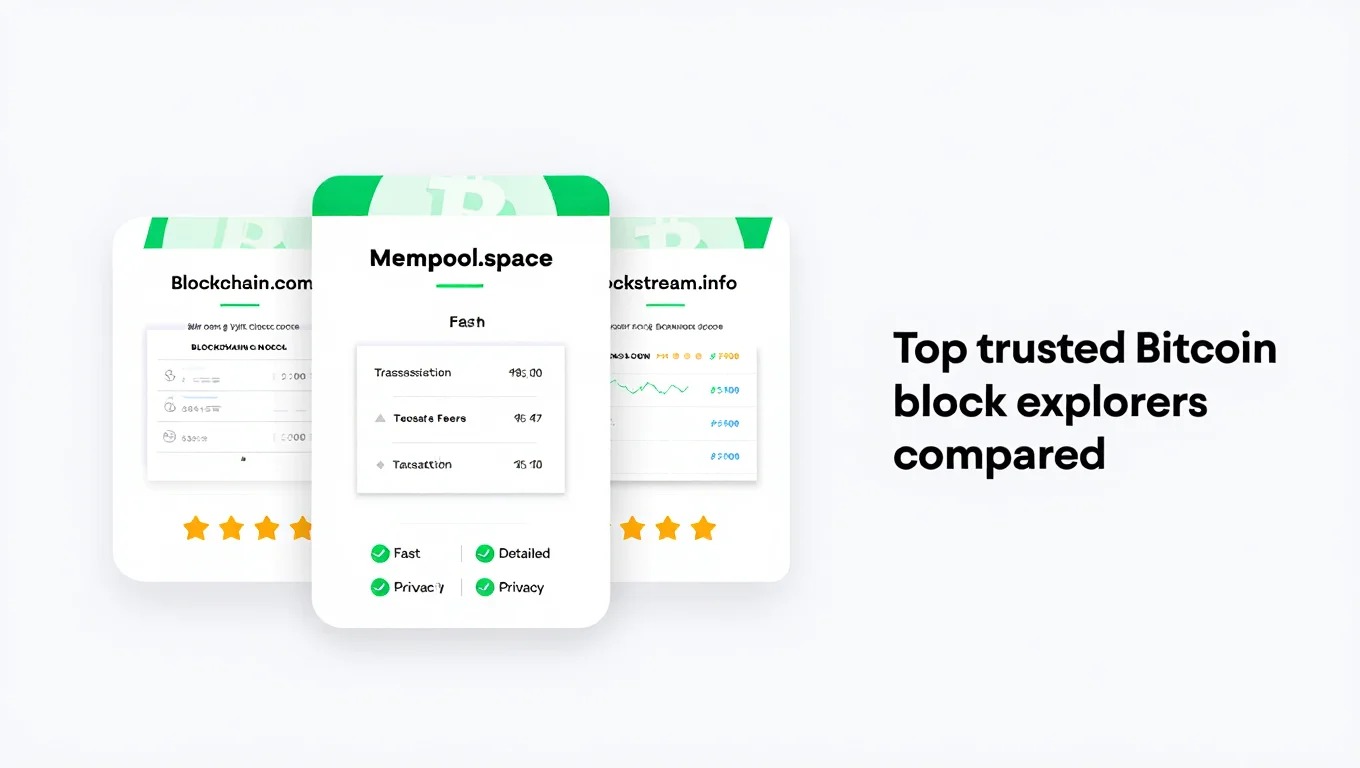
A block explorer is a website that allows you to look up and verify Bitcoin transactions on the blockchain. When choosing one, consider ease of use, privacy features, and speed. Here’s a quick comparison of leading explorers:
| Explorer Name | Features | Privacy Level | Pros/Cons |
|---|---|---|---|
| Blockchain.com | Search by TxID/address, user-friendly interface | Moderate | Fast and popular; ads can be distracting |
| Blockstream.info | Advanced data, Lightning Network info | High | Clean layout; ideal for technical users |
| Blockchair | Multi-coin support, data export | Moderate | Powerful filters; slightly complex for beginners |
| BitRef | Simple, lightweight design | High | Minimalist; fewer advanced tools |
Using a reputable block explorer helps avoid fake or scam sites. Always double-check the URL before entering your TxID or addresses.
View more:
- How to transfer bitcoins to wallet
- How to transfer money to bitcoins
- How to make an online purchase using bitcoin
4. How to interpret block explorer results for Bitcoin transactions
Interpreting results is a crucial part of mastering how to check Bitcoin transaction correctly. Once you have accessed transaction details on a block explorer, it is important to understand what the fields mean.
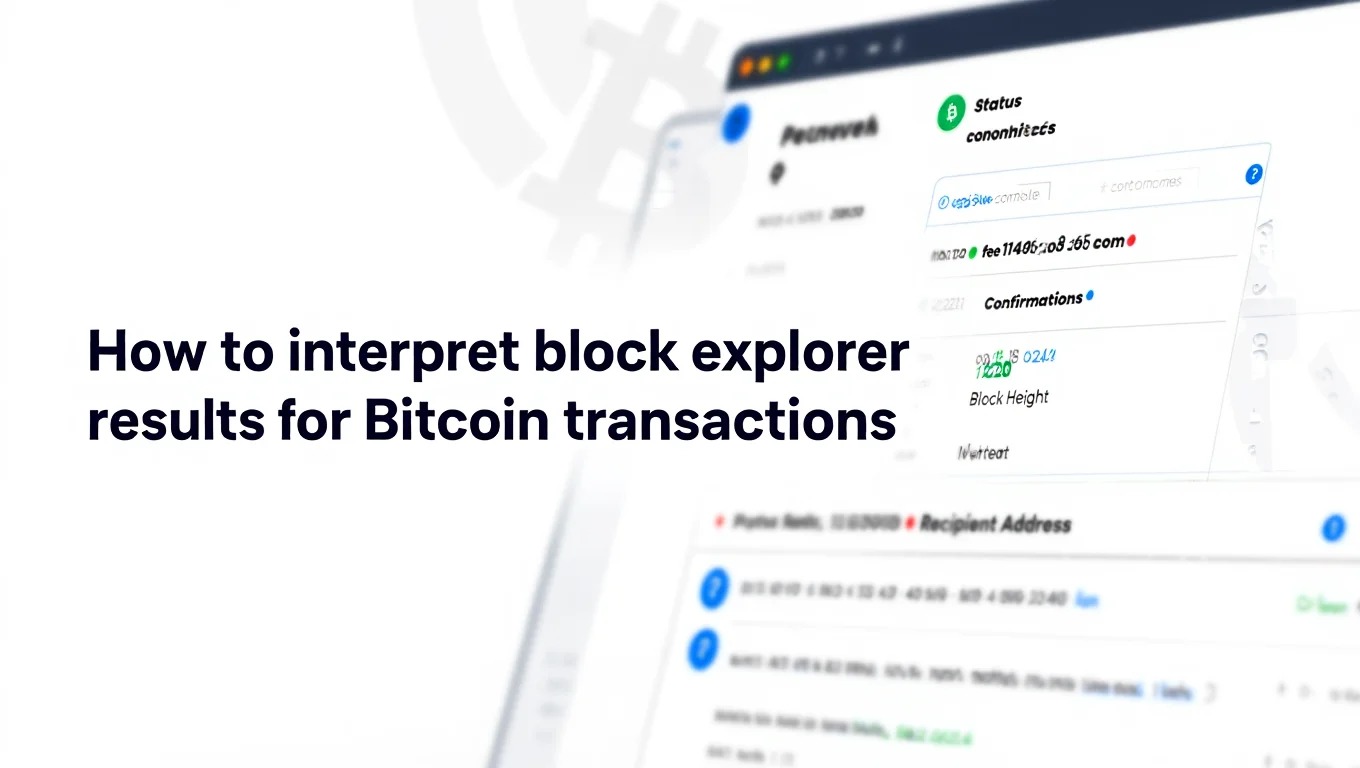
4.1 Confirmed vs. unconfirmed
Unconfirmed or pending means the transaction is in the mempool but not yet included in a block. Confirmed transactions have been added to the blockchain with at least one confirmation.
4.2 Key fields explained
- Confirmations: Number of blocks added after the block containing your transaction.
- Inputs: Bitcoin addresses sending funds.
- Outputs: Receiving addresses and amounts.
- Fee: Payment made to miners to process the transaction.
- Timestamp: When the transaction was included in a block.
- Block Height: The block’s position in the blockchain.
To know if a transaction is incoming or outgoing, check if your address appears in the inputs (sent) or outputs (received).
5. Troubleshooting delayed or missing Bitcoin transactions
If you’re facing delays and don’t know how to check Bitcoin transaction progress, start by identifying the fee level or mempool congestion.
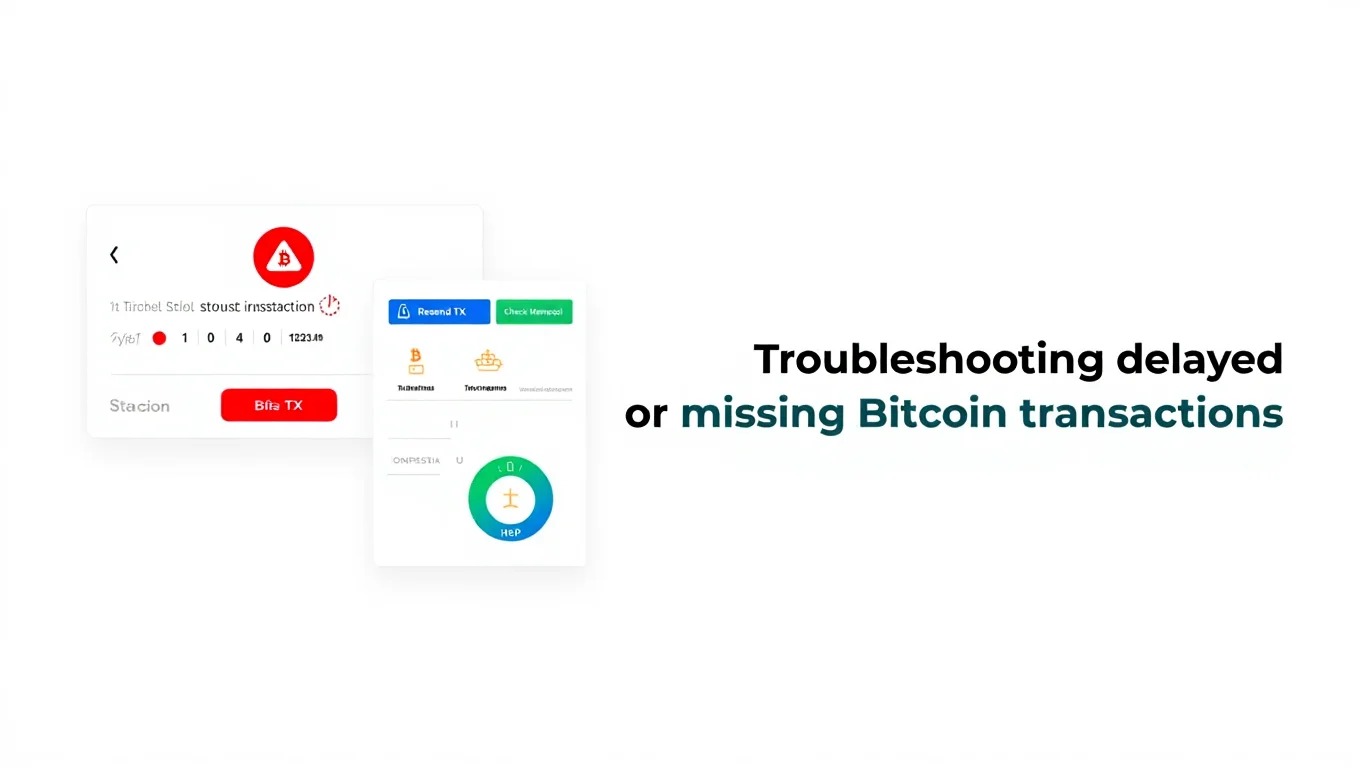
- Low fees: Miners prioritize transactions with higher fees. Consider using Replace-by-Fee (RBF) if your wallet supports it to increase fees.
- Network congestion: Busy periods cause delays. Waiting is often the best option during peak times.
- Child-Pays-For-Parent (CPFP): If you have control of a related transaction, you can attach a higher fee to speed up confirmation.
- Exchange delays: Exchanges sometimes batch transactions or process them internally, causing lag. Contact exchange support if needed.
Using a flowchart approach: Identify the delay cause > Try RBF or CPFP > Wait patiently > Contact support if unresolved.
6. Security and privacy considerations when checking Bitcoin transactions
While learning how to check Bitcoin transaction, be aware of privacy risks such as sharing your address or TxID in public forums.
The Bitcoin blockchain is public, so sharing your TxID or address reveals transaction history that anyone can view. This means your privacy is limited if you expose identifying information.
To protect your privacy:
- Use new addresses for each transaction to avoid linking your transactions.
- Avoid sharing TxIDs or addresses on public or insecure channels.
- Choose block explorers that respect privacy and do not track users.
- Be cautious of fake block explorers that phish for data always verify website URLs.
Privacy Dos and Don’ts
- Do use multiple addresses.
- Don’t share sensitive details publicly.
- Do use trusted explorers.
- Don’t click suspicious links claiming to check transactions.
Continue learning with these articles:
7. Bitcoin transaction FAQs
7.1 Can Bitcoin transactions be canceled or reversed?
No. Once broadcast to the network, transactions cannot be canceled.
7.2 What happens if a transaction never confirms?
It will eventually be dropped from the mempool, but you can resend with a higher fee.
7.3 How many confirmations are enough?
Six confirmations are generally considered secure for most transactions.
7.4 How can I prove I sent or received BTC?
By sharing your TxID, anyone can verify the transaction on the blockchain.
7.5 Are transaction details permanent?
Yes, blockchain records cannot be altered or deleted.
7.6 Do different wallets show status differently?
Yes, some wallets provide real-time data, others may delay updates.
8. Conclusion
How to check Bitcoin transaction accurately is an essential skill for any Bitcoin user whether you’re sending funds, receiving payments, or simply monitoring blockchain activity. By understanding how transactions flow through the Bitcoin network and how confirmations work, you can avoid delays, detect issues early, and ensure your funds are secure.
This guide has walked you through every critical step:
- Grasping the transaction process from mempool to final confirmation
- Using reliable tools like wallets and block explorers to check status
- Troubleshooting unconfirmed transactions and fee-related delays
- Protecting your privacy when sharing TxIDs or addresses
More importantly, you now have the confidence to handle real-world situations like waiting for a payment to arrive without stress or confusion. Knowing how to check Bitcoin transaction status not only helps you stay informed, but also empowers you to make smarter, safer decisions in your Bitcoin journey.
Don’t forget to follow the Bitcoin section on Vietnam-ustrade to stay updated with the latest insights and guides!





